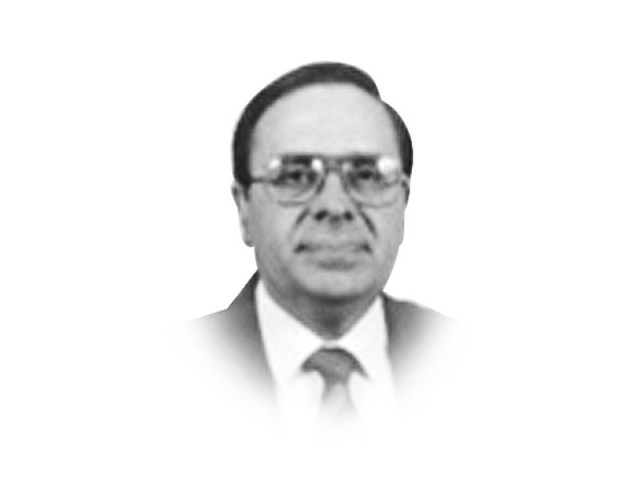Higher Education Commission — under renewed threat
Present Minister of Education has been behind a move to change the law so that the HEC be converted to the failed UGC.

The writer is a former federal minister for science and technology and served as Chairman of the Higher Education Commission from 2002-08. He is currently president of the Pakistan Academy of Sciences
However there was a dramatic change for the worse in 2008 when the present government came into power. Attacks against the higher education sector started almost immediately in 2008 and have continued unabated since then. They have proved that the analysis and fears expressed by the world’s top science journal Nature in 2008 were correct. In an editorial in its August 28 issue, entitled “After Musharraf”, it had said that the PPP had a very poor record as far as support to education was concerned.
The HEC had found that 51 members of parliament had obtained fake degrees in order to contest elections and that there were another 393 who probably were in the same boat but simply refused to submit their documents for verification. It is these honourable ladies and gentlemen who ganged up against the HEC to teach it a lesson.
The first attack on the higher education sector occurred in May 2008 when the government decided to abandon the visionary projects for the establishment of a number of world class universities of engineering and technology in collaboration with a consortia of leading universities of Germany, France, Sweden, Italy, Austria, Korea and China. This would have provided foreign degrees to Pakistani students and they were in the process of being established in Lahore, Karachi, Islamabad, Sialkot, and later in Peshawar and Quetta. The project was abandoned three months before classes were to begin, and this angered the countries with whom the arrangements had been finalised. This was followed by a move to go back on the establishment of four law universities, one in each province. Another attack took place in September 2008 when the government decided not to release funds for thousands of students studying on HEC scholarships in foreign countries. This precipitated my resignation in protest, as I considered it unethical to continue to serve as chairman while the children of Pakistan were suffering abroad. The attacks, however, continued after my departure, with the budget being drastically slashed.
My successor, Begum Shehnaz Wazir Ali, and later Dr Javaid Laghari, fought on valiantly in spite of the difficulties that they faced. Then, on November 30, 2010, the government issued a notification shredding the HEC into pieces and devolving it to the provinces. I decided to fight and filed a petition before the Supreme Court. The Court declared the government’s steps unconstitutional and the HEC was thus saved from destruction, at least temporarily. The PM Secretariat then issued an order on November 26, 2012, that more or less sought to destroy the HEC’s autonomy and bring it under the Ministry of Education. An order was issued by the Establishment Division on November 28, appointing a retired major, who is secretary of the Ministry of Education, as CEO (executive director) of the HEC in place of the brilliant Dr Sohail Naqvi. Under the law that governs the operation of the HEC, this was illegal as it is only the 18-member Commission that has the powers to appoint all officers, servants and advisers (Section 12, of HEC Ordinance on Appointment of Officers etc.). The Commission can make its own rules and appoint officers without any external interference, and it is this autonomy that has been one important reason for its outstanding success so far. I filed a petition before the Supreme Court, and the Honourable Court declared the government takeover attempt illegal. However, the present Minister of Education (whose own degree has been challenged in the Lahore High Court) was not to be deterred. He has been behind a move to change the law so that the HEC could be formally converted to the failed UGC (University Grants Commission) that existed under the Ministry of Education prior to October 2002.
What are the reasons behind the latest attacks? 1) About 393 MPs may not be able to fight the next elections if their degrees are scrutinised and if it is found that they were forged. They would be disqualified under Articles 62 and 63 of the Constitution that require integrity to be a key eligibility requirement. 2) The term of the present chairman is proposed in the amendments to be slashed from four to three years, mainly so that the present government could appoint an obedient chairman of its choice before the election — Dr Javaid Laghari is considered too independent and has completed three years of his four-year term. 3) The financial powers of the HEC are proposed to be taken away from it under an amendment to the law, as proposed by the Ministry of Education. It should be remembered that the HEC’s annual budget is Rs44 billion and that most universities have lands worth billions. A docile HEC, operating like the old UGC, could allow corruption to occur without hindrance. 4) Scholarships worth billions are awarded after competitive exams strictly on merit, and ‘recommendations’ from ministers are ignored — the corrupt politicians have their eyes on these too.
That battle is currently on. All the vice-chancellors are strongly opposed to the latest attempt by the government to destroy the HEC. The chairman of the National Assembly’s Standing Committee on Education Rohail Asghar is himself a very honest and educated person. I am confident that he will not allow those who want to destroy the HEC to have their way.
Published in The Express Tribune, February 7th, 2013.















COMMENTS
Comments are moderated and generally will be posted if they are on-topic and not abusive.
For more information, please see our Comments FAQ